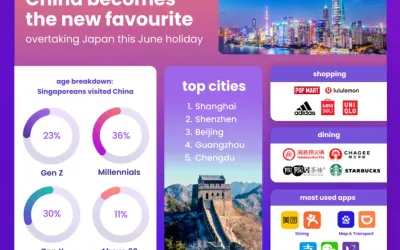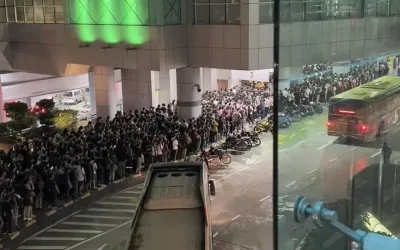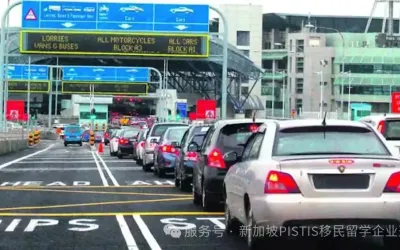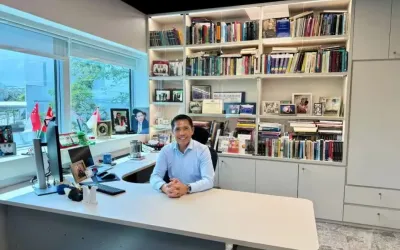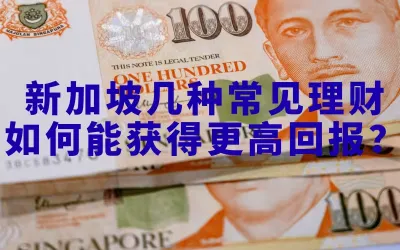PM Lee: I hope the time does not come. It is not possible for us to choose one or the other because we have very intense and extensive ties with both the US and with China, economic as well as in other areas, and so do many other countries in the world. I do not think this is a dilemma only for Singapore. It is a problemfor many countries in the world, which is why we are all hoping and encouraging the two large powers to think very carefully before deciding that the other one is an adversary which has to be kept down, if not put down.
BBC: What would it take, do you think, to get to a point where we see real military conflict between China and the US? How likely is the possibility, do you think?
PM Lee: It is more likely than it was five years ago, but I think the odds of a military clash are not yet high. But the risk of severe tensions, which will raise the odds later on, I think that is considerable, because both sides take the domestic calculations as paramount. What is their domestic position? How canthey secure it? What must they do with their own populations, [that] their external relations are based on? Therefore, it is not so easy to say the external logic compels you to work together, because the internal logic may impel you to takea very hard line, and then you may find yourself at an impasse and clash. That can easily happen.
BBC: Do you think the US needs to accept that it is no longer number one?
PM Lee: The US is still number one, but number two is not so far behind. That is what is difficult for the US to accept.
BBC: How concerned are you with the direction that China is taking politically?
PM Lee: We cannot judge the domestic pressures which lead China to make the decisions it makes. But I think internationally the position it has taken has won it some friends but at the same time, has led to tensions with major powers, and with many other countries. And there is significant uncertainty and anxiety over which way China is going, and whether this will be good for them. I do not think that is in China's interest.
BBC: What do you think might be a better solution or a better way?
PM Lee: I would hesitate to give advice to other countries’ leaders. I think they all make their own calculations, but what we would like to see is China being ableto be a country where its prosperity, development and its growing strength is welcomed by other countries in the world, who see this as an opportunity for them to prosper together and to live in a stable world together. Even now, many countries, including Singapore, want very much to maintain good relations with China in order to benefit from China's development and to co-prosper with them. I think that that is a very important factor which China has had in its favour, which would be a pity to miss out on in the next phase.
If you look at America, it used to be that the business people, American businessmen, MNCs, would be one of the strongest advocates for good relations with China, because they saw the opportunities there. They saw how they could prosper there; they were investing there, they were trading. Walmart buys enormous amounts from China, and it benefits Americans, not just Walmart, but American housewives and ordinary people all over the country. But in the last five to seven years, I think American business attitudes have shifted, and they are now no longer as open in the support of China. In fact, there is quite a lot of pushback. It is not that the opportunities are not there, but they see that China has moved forward, and they want to see a more open environment, and one where they get a bigger bite of the cherry. I think it is understandable. China is [in] a new position now, and you have to set a different balance in your relationship with the world. What the world was prepared to grant you in an earlier phase now has to be reworked, and that is quite difficult for a country to accept.
BBC: Indeed, and it makes it quite difficult for a country like Singapore that sits in the middle of all of these to navigate. When you do try and navigate with these big economic and political powers, what are some of your key considerations?
PM Lee: First, what is in Singapore's interests? How do we make a rational assessment of that and make that judgment for ourselves, and hold our people together, persuade them that this is the right thing to do? Generally, it is that we want to be friends with both, but we have to find our own way forward. From time to time, there will be kerfuffles. We have had kerfuffles with China once in a while, with America also once in a while. When that happens, you have to understand it cannot be helped. Between countries, this happens. It does not mean we are your opponents, but it does mean that we have problems which need to be worked through, and meanwhile [there are] other areas where we can continue to work together. That is how we do it.
BBC: But is it realistic to sit on the fence? The Biden administration has already called for a review of supply chains, saying it wants to work with like-minded countries. It sounds like the US has made a choice. Do you not want to make achoice before it is made for you?
PM Lee: These tensions will come. The Europeans feel the same. They signed an investment agreement with China, just before the Biden administration took office, so I do not think we are the only ones in this boat.
BBC: What sort of leader do you hope to see in President Biden when it comes to dealing with China and Asia?
PM Lee: I do not need to give him advice, but we look to a President who has first, good domestic support. Second, a good understanding of the world and the US’ role in the world, believes in multilateralism and international trade, and is prepared to play America's part to uphold the system from which America benefits so much.
BBC: What would it take, do you think, to get to a point where we see real military conflict between China and the US?
PM Lee: It could happen before you expect it, if there is a mishap. If the countries are careful, it will not happen. During the Cold War, there were many near misses, but that went on for nearly 40 years, and we avoided a nuclear catastrophe.
BBC: How likely is the possibility, do you think, given that you know these two countries so well, of something like that happening now?
BBC: How do you see these two superpowers co-existing, if at all, in this region?
PM Lee: They have to coexist. There will be competition in the region, tensions, and issues like the South China Sea. But these are two very major powers, neither of whom is going to be able to put the other one away, and neither of whom is going tocurl up and die. China is not like the Soviet Union, which had an economy which was unsustainable, a lot of which was make-believe, and eventually, Ronald Reagan said SDI (Strategic Defense Initiative) and pushed for that. That was enough to push [the Soviet Union] over the brink, and Gorbachev took them adifferent direction.
